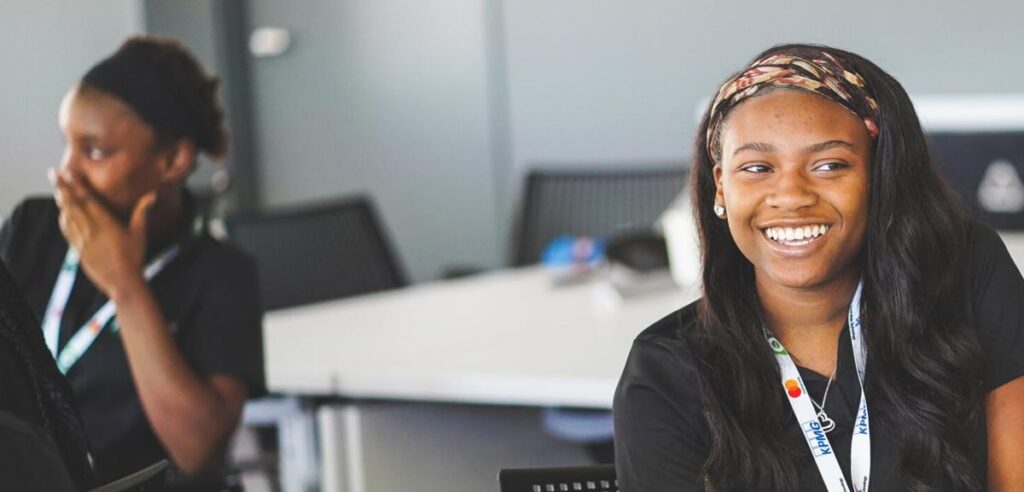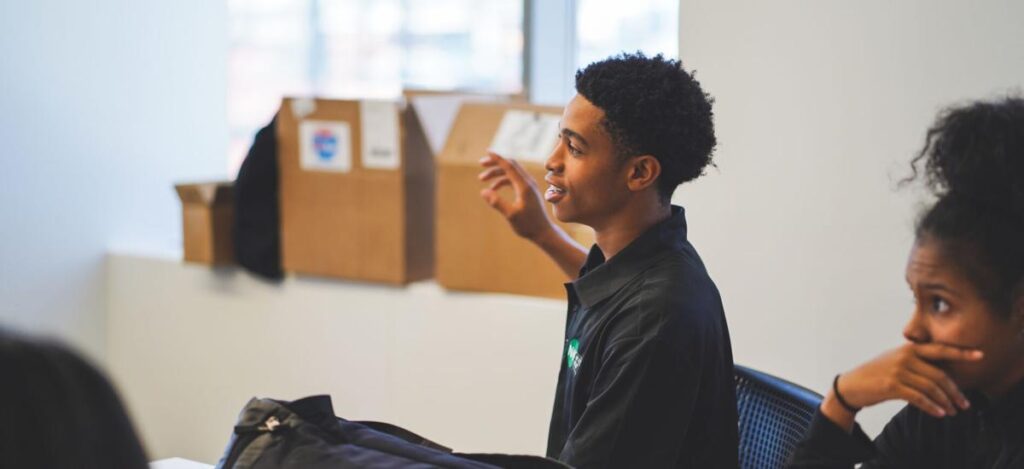By Sophie Hurwitz

NAF — a national nonprofit that works with local business leaders to establish career-readiness programs in schools — is expanding its national network for the 2021-2022 school year with 50 new academies in cities across America, including St. Louis.
This year, they are opening academies — that is to say, career-readiness learning programs based around different jobs — at McCluer High School, McCluer North High School, STEAM Academy at McCluer South-Berkeley High School and The Innovation School.
The “academies,” per NAF’s website, are “small, focused learning communities that fit within and enhance high school systems, allowing NAF to become an integral part of a plan for higher achievement at low cost.” Bill Taylor, Vice President of Outreach and Partnership Development at NAF, points out that this model is relatively accessible to students from all backgrounds, as it works on a basis of open enrollment; any student who wishes to enroll in an NAF academy may do so. Nationwide, students who enroll in NAF academies have a 99% high school graduation rate, even when the academies are based at schools with significantly lower graduation rates. Of those students who graduate, according to Bill Taylor of NAF, 87% go on to some type of postsecondary education.
Taylor emphasized the open-enrollment nature of the academies as a tool for increasing equity in STEM. “We encourage schools to make sure the academies are open enrollment, so students can gain access to the academy because of their interest, not because they’ve met some kind of prerequisite of a 3.5 GPA or other screening requirements,” Taylor said. “Because these academies in particular are designed for students who historically have had a lot of…structural racism, other issues, that have typically prevented young people of color and young women from succeeding, particularly in STEM fields. So if we’re going to be intentional about increasing opportunities, then we have to make sure we aren’t placing any limiting barriers…right up front.” About 400 St. Louis-area students participated in NAF academies last year, 95% of them being students of color and/or young women.

Students in NAF academies generally start out their four-year trajectory with ‘career awareness activities,’ or lessons that help expose students to the different career possibilities that exist out there. Then, they allow students to actually explore those possibilities, culminating in an internship with a local company like MasterCard or KPMG. One of those companies is World Wide Technology, a major tech employer in St. Louis, where Juanita Logan serves as Area Vice President. Logan is also on the regional business advisory board for NAF. The group, she said, is always seeking more partnerships to join their educational work.
“That’s the goal, that’s the aspiration, is to get more corporate partners — it doesn’t have to be big corporations, it could be any business that sees the value and wants to provide opportunity for young people, particularly in underrepresented communities, to work in the STEM fields,” Logan said.
Jennings High School, under the leadership of then-Superintendent Art McCoy, was the first local school to implement a NAF academy, Logan said. Next came University City. Now, there are 11 academies being established this year in the Ferguson-Florissant school district, joining the others in the city of St. Louis and University City school districts.
At WWT, Logan said, they usually take between 20 and 25 student interns through NAF programs per summer. These internships are, on average, four weeks long, and are paid. Students are assigned a mentor at their host company, and “have different experiences relative to what it is to be a professional in a tech environment,” Logan said.
And after their culminating internship experience, many students use the skills they learned during their NAF experience to move on to other skill-building programs towards tech careers. “We have students that have come out of high school, that have participated, for instance, in the NPower program, and then found employment,” Logan said. Students have also been connected to programs such as Rankin and Launch Code through NAF. Sometimes, they even return to the places they interned in high school as college-level interns.
Taylor says the secret to the academies’ success is the connection they make between skills learned in the classroom and skills that might be of use in a corporate setting. “Relevancy…that’s what really engages young people, gets them excited about what they’re learning,” he said. Students want to know what businesses are actually doing, and the NAF academies help them do so.


